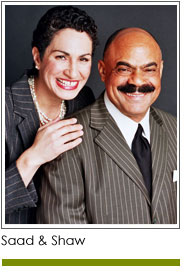 Are you and the nonprofits you are involved with ready for the year end? Many nonprofits seek to raise a meaningful percentage of their funds during the last two months of the year. Planning usually begins in August, but it is not too late to make a plan and implement it.
Are you and the nonprofits you are involved with ready for the year end? Many nonprofits seek to raise a meaningful percentage of their funds during the last two months of the year. Planning usually begins in August, but it is not too late to make a plan and implement it.
Here are our recommendations. Take time to consider what you know about your donors and their history with your nonprofit. Who has responded to direct mail appeals? Who gives because of an email or social media campaign? Who are friends of board members? Who regularly attends your special events? Knowing who your donors are can help you set an achievable year-end fundraising goal and develop strategies for different groups of donors.
Move beyond a “one size fits all” direct mail or email appeal. Instead, determine how you want to engage each donor. Do you want to encourage those who attend special events to make a gift to your annual fund? Are you looking to encourage online donors to increase their giving or make an additional gift? Do you want to encourage prior direct mail donors to give at a higher level? Do you want to reengage those who gave in 2011 but did not give in 2012?
Your database can help you define your strategies. Consider running the following reports: first time donors; donors who gave multiple times during 2013; those who purchase event tickets but have not yet made a gift; those who give major gifts; those who have given for each of the past five years; those who give by email only; donors who responded to prior direct mail appeals.
Review the reports. Identify those you want to communicate with via email or direct mail. Check to see which of your board members have relationships with your major donors: ask them to personally solicit those they know. Identify those special events supporters and develop a strategy to solicit a year end gift. Consider working with a consultant to find the right strategy.
Think about what your nonprofit has accomplished over the past year and what you want to accomplish in 2014. Craft your message for each medium using emotion and facts. Share how past gifts have made an impact, and how a gift today will increase or continue that impact. Ask for a specific amount. Email should be short, with links and images. Multi-page direct mail letters are most effective. A Facebook campaign will be distinctly different, and hopefully viral. Conversations that board members and volunteers have during personal meetings with major donors will be different still.
One size does not fit all. Each year-end ask should be appropriate to the donor. Take the time to figure out the right approach for each donor. Hone your message. Set a goal and track your activities and results.
Copyright 2013 – Mel and Pearl Shaw
Mel and Pearl Shaw are the authors of “Prerequisites for Fundraising Success.” They position nonprofits for fundraising success. Visit them at www.saadandshaw.com.












